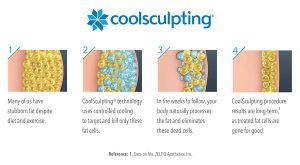If your focus is long-term weight loss, bariatric surgery is a proven way to accomplish this goal. But just as with anything worth having, you have worked hard and follow the guidelines provided by your physician in order to lose the weight and keep it off. Avoiding these common mistakes is a great way to ensure you finally reach your goal weight and stay there.
1. Neglecting Important Vitamins
Your physician will recommend vitamins to help your body recover from the surgery and maintain the best health possible. Don’t try to save money by purchasing over-the-counter vitamins. Take the ones recommended by your doctor to ensure your body is getting all the vitamins and minerals it needs.
2. Not Getting Proper Nutrition
Surgery is serious business, and it is important that your body heals properly. Now that your caloric content is constructed, it’s vital that you pack your diet with healthy nutrients. Your body won’t function well if you use your calorie rations to only eat potato chips or other foods that have no nutritional value. If you don’t eat the foods your physician recommends, you are at risk of developing medical problems, such as heart disease, memory loss, fatigue, etc. Stomach and gastrointestinal problems are also a concern.
3. Forgetting to Stay Hydrated
Drinking plenty of water or healthy liquids is one of the most important things anyone can do to enjoy maximum health. Water helps every part of your body function well. Staying hydrated is particularly important for surgical patients since it helps the body heal provides energy and hastens weight loss. If you don’t like tap water, buy flavored water, add lemon to your water or drink another healthy beverage, such as unsweetened ice tea.
4. Not Watching Your Calories
You may think that a tiny handful of nuts, chips, crackers or candy won’t affect your diet, but these foods pack a lot of calories in small portions. If you don’t count the calories of every morsel, you may wind up consuming hundreds more calories each day. This common mistake is one of the ways bariatric patients fail to reach their long-term weight goals.
5. Indulging in Alcohol
Almost everyone enjoys an alcoholic beverage at times, especially if there is a special occasion. Be cognizant of the fact that alcoholic beverages are full of calories and can quickly cause you to go over your calorie limit.
6. Drinking Carbonated Beverages
Carbonated beverages are quite refreshing but shouldn’t be your beverage of choice when you’re thirsty. They are full of sugar, which substantially increases your calorie intake. Carbonated drinks can also cause gas pain. At times, more serious issues can be mistaken for gas pains, and this can cause you to neglect medical care when you really need it.
Having bariatric surgery is your chance for a new life filled with the quality living you crave. Following the guidelines the doctor gave you ensures you stay focused on this long-term goal and eventually reap the rewards!


